“It just had shown up overnight.”
Sarah Suleman
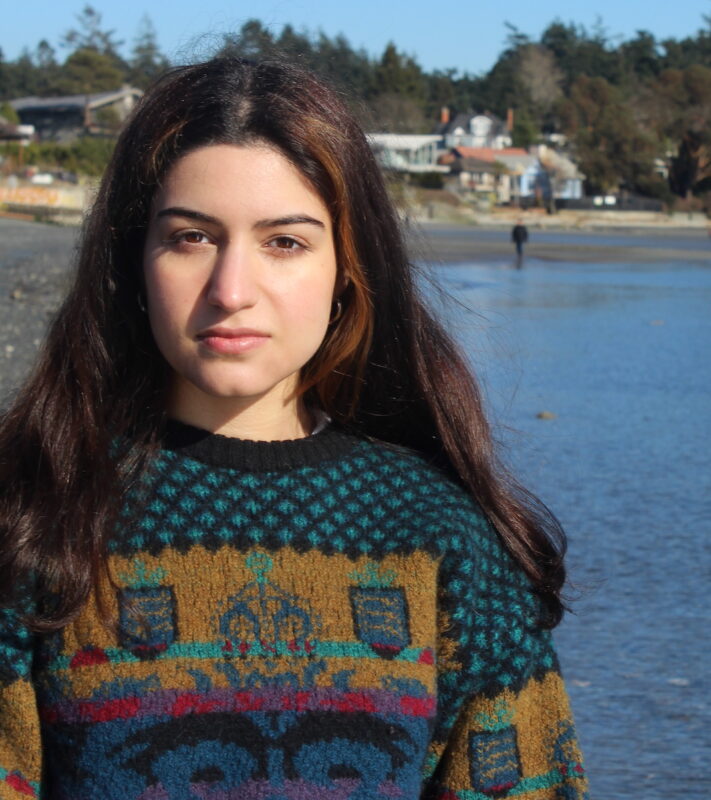
Growing up in Victoria, British Columbia and spending time in Lisbon, Portugal, Sarah Suleman always felt very lucky to be raised around forests and oceans. “There’s something about trees. Where you can see that there’s been growth for a lot of years. It’s just very peaceful,” she said.
It’s also very different from her parents’ experience. Both immigrated to Canada from their home countries in 1978. After the civil war in Mozambique, her dad left and became stateless. Sarah’s mom left Iran because of the unrest and violence happening there. She ended up leaving right before there was the Iranian hostage crisis. They then met about 12 years later at the University of British Columbia.
They had Sarah and about a year later moved to Victoria. She has spent most of her life living near Cordova Bay with her parents, her brother, and their golden retriever Buddy. Sarah often takes Buddy for walks on the beach or spends her time surrounded by the trees on the University of Victoria campus, where her father works as an engineering professor. She is studying computer science and journalism there, while her mother is a professor at nearby Camosun College.
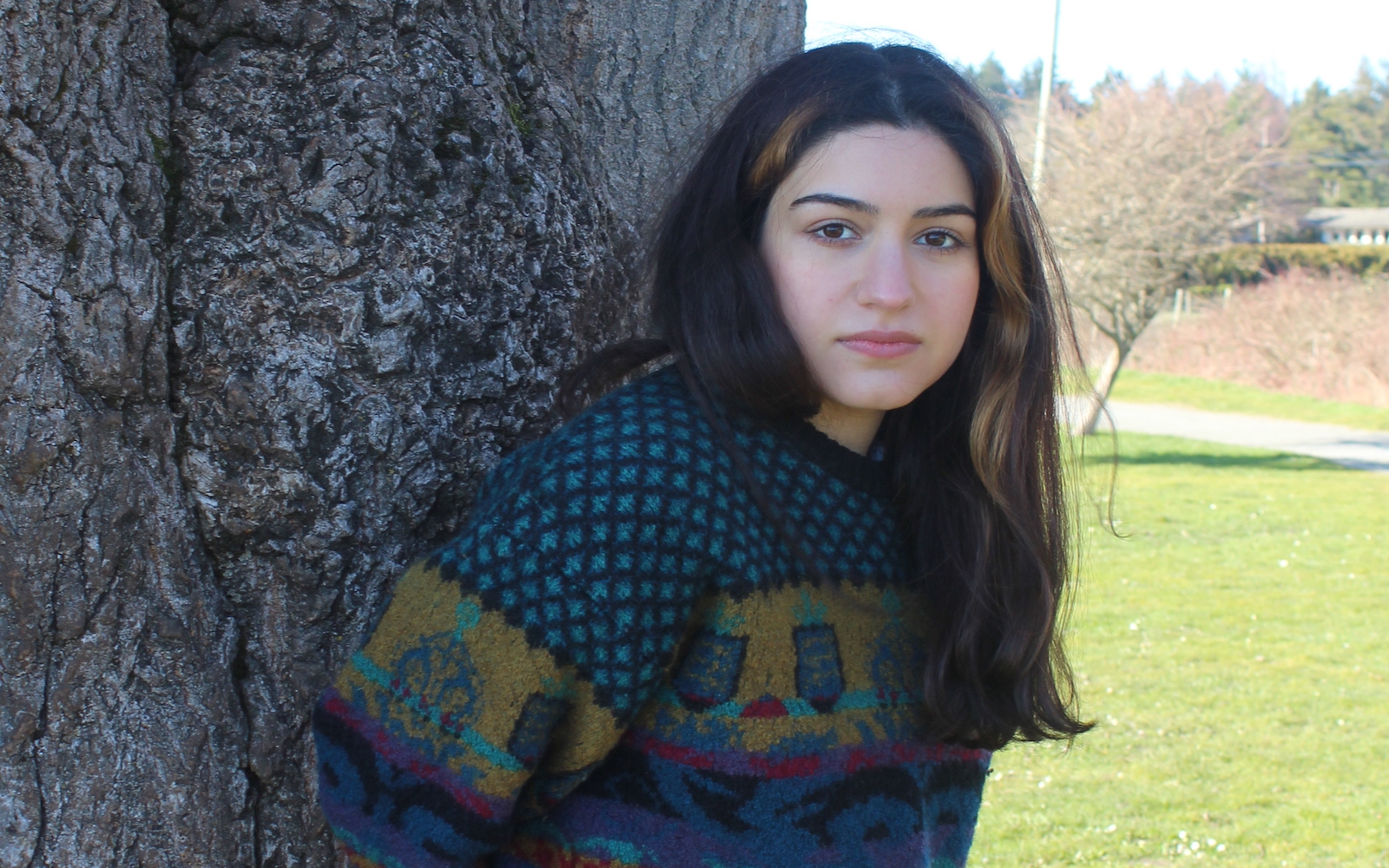
Sarah was studying for midterms when her family home was flooded. (CDP Photo/Sophie Thomas)
I went to Iran for two weeks. I don’t think I would go back now. It was a little bit scary. It was great to see all my family but you can feel the political tension. And that was over ten years ago. The climate was horrible. It was just smog and garbage everywhere. I remember there’s a lot of mountains in Iran. I would go mountain climbing with my aunts, and there would be stray dogs trapped in garbage.
There’s no regard for life outside, because that’s not available to people. All the life happens indoors. Women have to be fully dressed when they go outside. You can’t smoke, you can’t drink. So then there’s no concern for how the outside is being treated, basically. I just remember being taken back by it because it wasn’t a subtle shift from where we were living in Victoria.
I do think that it’s a symptom of privilege that the first time I’ve ever been in a situation where my home has been affected would be the heat dome that we had in the summertime. I remember being in Lisbon in August in forty something degrees Celsius heat, and it was worse here—to the point where it feels like it’s choking you.
I just remember not being able to go to sleep. You can’t get away from it. Even going for a cold shower, going outside, or putting a towel on yourself, nothing really took it away. There was no place to leave it. It’s one thing to see climate change, out in the world. It’s another thing to have it show up at your front door.
We had flooding a couple months ago. It was during midterms. I just woke up and my parents were freaking out because there was over a foot of water in our basement. It just had shown up overnight. They spent a lot of time throwing out stuff that had been water damaged. They were very lucky because the water came up to a point where there were electrical cords. If my dad stepped into that water and there had been a live electrical cord he could have gotten electrocuted. We’re still dealing with the effects of it right now, having to completely renovate. I feel it would be much worse next time.
Events like these keep happening and they’re happening more frequently and closer together. I don’t think climate change happens in a vacuum. It’s gonna inform everything else. I just feel it’s so deep rooted. And it’s so much about the psychology of human beings, which I still fully don’t understand. It doesn’t matter how many great solutions we come up with technologically or politically. It’s just going to keep happening because we’re not addressing why it’s being caused in the first place.
I don’t think that the plan I had for my life is based off just going and having fun. I always thought, “Am I going to do something with the privilege that I’ve been given?” That means doing my homework, taking care of my family, and hopefully down the line there are going to be ways where I can impact the problem. Sometimes you have to be like, “Okay all this is happening. And it’s terrifying. And I have to focus on what I can do, because I only have control over my choices.”
It’s just a matter of allocating resources at this point in my life. With everything happening with Fairy Creek right now, I have the training that I could go up there with my recorder and a notebook and write an article on it. I could do that. But then I have a midterm to study for. If I fail this midterm, then I’m not going to graduate with my degree. And then I’m going to have another problem in front of me. I know I’m just always in conflict with myself about where should I put my energy. Like, what’s going to be most beneficial to everyone else around me? And I don’t really have the answers for that yet.
This story was originally published in the Royal British Columbia Museum, on January 15, 2023.
Related Stories
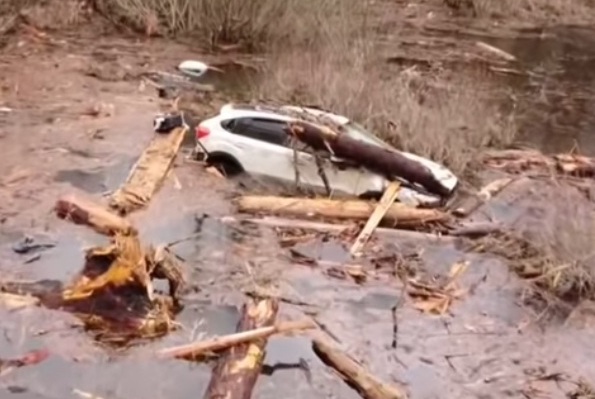
Wanda Turner, Chilliwack, Canada
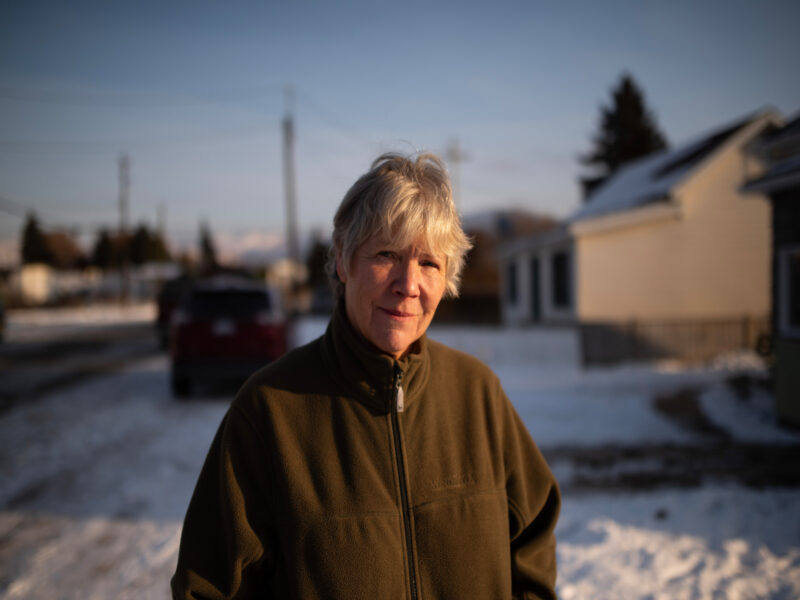
Donna Rae, Merritt, Canada
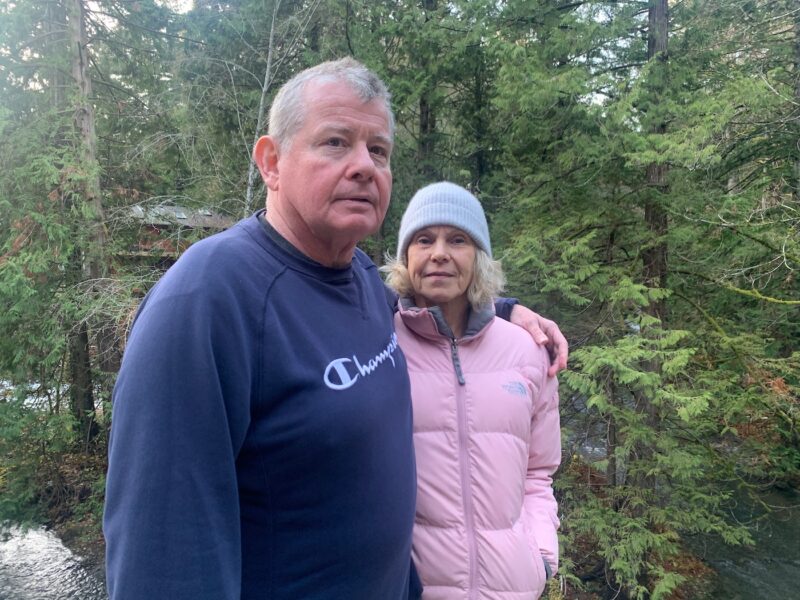
Jeff and Cheryl Morrow, Langford, Canada